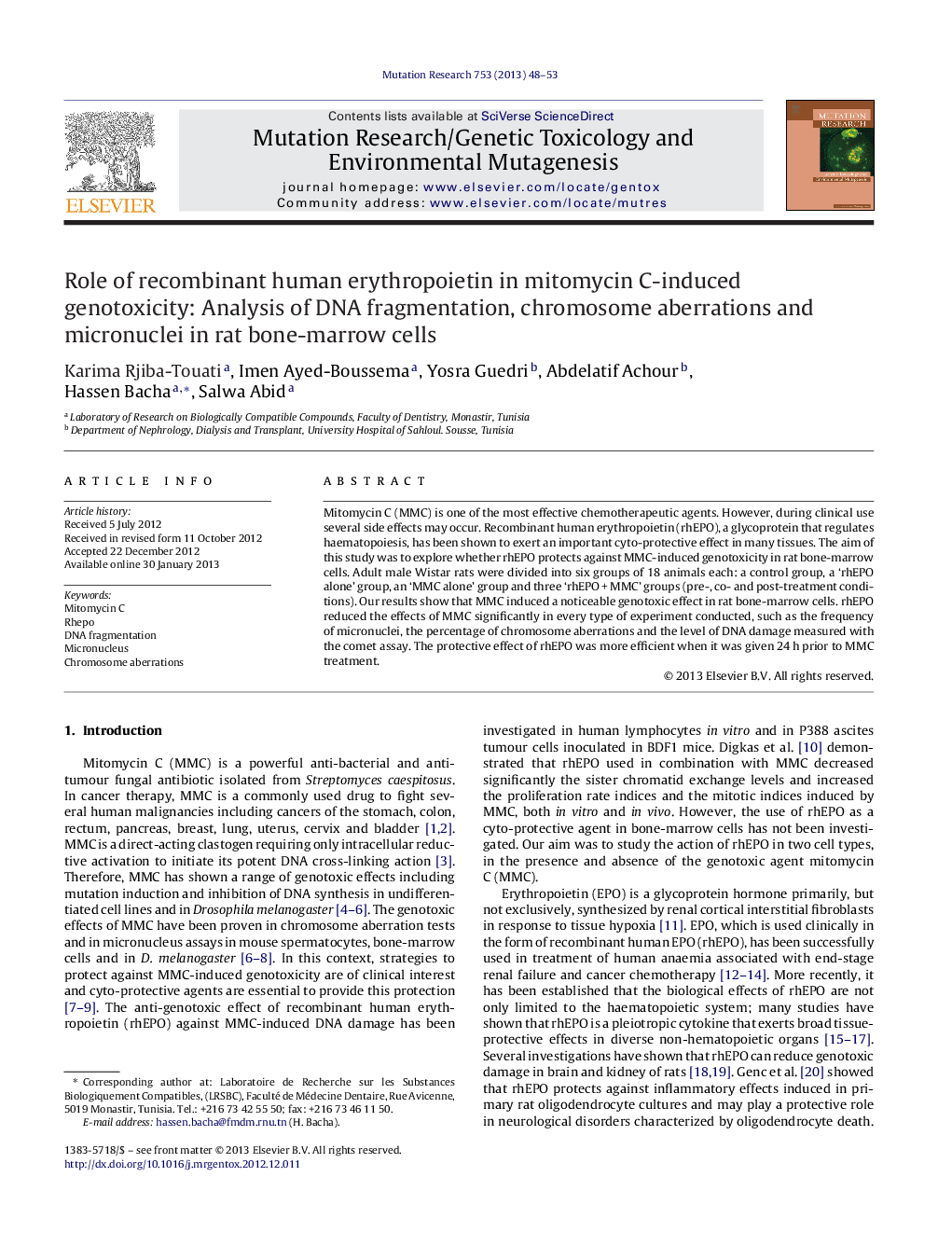| Article ID | Journal | Published Year | Pages | File Type |
|---|---|---|---|---|
| 2148045 | Mutation Research/Genetic Toxicology and Environmental Mutagenesis | 2013 | 6 Pages |
Mitomycin C (MMC) is one of the most effective chemotherapeutic agents. However, during clinical use several side effects may occur. Recombinant human erythropoietin (rhEPO), a glycoprotein that regulates haematopoiesis, has been shown to exert an important cyto-protective effect in many tissues. The aim of this study was to explore whether rhEPO protects against MMC-induced genotoxicity in rat bone-marrow cells. Adult male Wistar rats were divided into six groups of 18 animals each: a control group, a ‘rhEPO alone’ group, an ‘MMC alone’ group and three ‘rhEPO + MMC’ groups (pre-, co- and post-treatment conditions). Our results show that MMC induced a noticeable genotoxic effect in rat bone-marrow cells. rhEPO reduced the effects of MMC significantly in every type of experiment conducted, such as the frequency of micronuclei, the percentage of chromosome aberrations and the level of DNA damage measured with the comet assay. The protective effect of rhEPO was more efficient when it was given 24 h prior to MMC treatment.
► MMC induced a noticeable genotoxic effect in rat bone morrow cells. ► rhEPO decreased the frequency of micronuclei ► rhEPO decreased the percentage of chromosome aberration ► rhEPO decreased the level of DNA damage.
